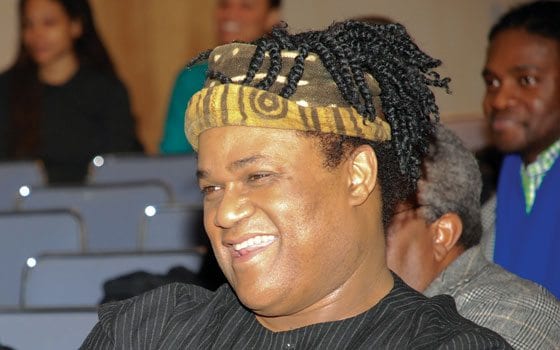
Larry Watson is no stranger to music.
As a professor at Berklee College of Music and successful recording artist, Watson knows a thing or two about African American music.
During earlier generations, Watson explained to students during one of his recent classes, “Black music was the psychiatrist and the therapist … You could turn on the radio, and there would be songs about the war, about civil rights, and about social justice … Now you don’t hear that in today’s music.”
Watson wants to change all of that in his own performances and what he described as “the art of music.”
That opportunity came during Watson recent concert at Scullers Jazz Club last week. Initially planned as a tribute to the Civil Rights Movement, Watson quickly switched gears as news unfolded on the tragedy left behind the earthquake in Haiti.
“We all must pray for our Haitian brothers and sisters,” Watson said. “Their fate is our fate. These are trying times for our communities and we need to surround ourselves with like-minded praying people, and collectively embrace our power.”
As a performer, Watson is able to captivate his audience in much the same way as he attracts the attention of his students. “I believe that I am a vessel, and all musicians are,” he said on stage, while entertaining a mature crowd of at Scullers.
Even though the lights were dimmed low, Watson and his band — guitarist Tyrone Chase, drummer Les Cleveland, pianist Alonzo Harris, and bassist Vaughn Brathwaite — lit up the stage.
His performance that night started off with a brief discussion of reparations, which Watson thinks is an issue that Africans in America should recognize as a movement that “must involve all stratum of the black community.”
On this issue, through his unique role as both educator and entertainer — or “edu-tainer,” as he often refers to himself — Watson continues to play a critical role in “breaking down the jargon of the academia.”
Through Michael Jackson classics, Donnie Hathaway grooves and Aretha Franklin ballads, Watson brought together the messages of the past to the events of the present. A very humble performer, Watson noted on stage that his voice was made possible by those performers that came before him, noting James Brown’s famous song “Say it Loud (I’m Black and I’m Proud)” that was edited to restrict the “I’m black and I’m proud” chorus when played on the Ed Sullivan show years ago.
Watson encouraged those in the audience as well as his students and other performers to not just use their music to make a quick dollar, but to change the world with their voice.
“That is the embodiment of Dr.King,” said Watson. “He would of wanted us to make a difference in this world.”






